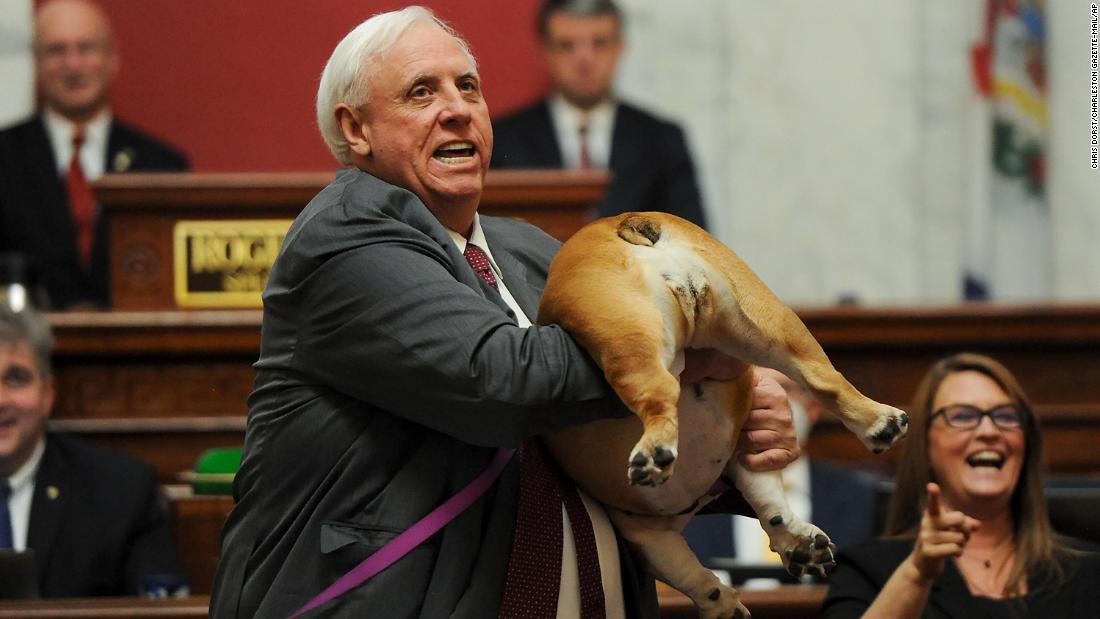I apologize from the start. There is no way to make a discussion of the Electoral College short and snappy. The only way to do this topic justice is to cover it top to bottom. So that is what I have tried to do. Anyone hoping for a short read should quit now while they are ahead.
Let’s start with a simple proposition with which most everyone these days would agree – the President of the United States should be elected by a majority of voters. Over this nation’s more than 240-year history, our understanding of democracy has come to mean one person one vote, with each of those votes being equally valuable. Nowhere should that be more important than in the election of the President. But our Founders had a different notion of how the election of the President should work.
- Adoption of the Electoral College.
During the constitutional convention in 1787, some delegates were in favor of direct election of the President. But the more influential of them, including James Madison, were not. There were several reasons for this. Some delegates felt that the country was too large for voters in one region to know the worth of candidates from another region. The party system, which allows factions to organize candidates into slates recognizable in all regions, did not yet exist.
But the most persuasive reasons were based in power politics. Direct election of the President would permit areas with the majority of voters to dominate this important choice. The delegates had already performed a complicated balancing act with respect to the legislative branch to ensure that small states did not get steamrolled by large ones – the Senate would consist of two Senators from each state regardless of size. A method was needed to permit majority selection of the President that still respected the new federal system. Just how to do this was a difficult decision that occupied most of the summer of 1787.
The Electoral College was a last-minute compromise that was no one’s first choice. Madison said that because the final adoption of it took place in the latter stage of the convention “it was not exempt from a degree of the hurrying influence produced by fatigue and impatience in all such Bodies.” We can all recognize this – they wanted to get out of town.
An uglier truth about this process is that slavery played a large part in the reluctance of southern states to support direct election of the President. The Virginia delegates feared that the North had a greater number of voters because slaves in the South obviously could not vote. Representation in the House of Representatives had presented a similar issue. The pernicious compromise reached was that when allocating seats in the House, which is based on population, slaves would count as 3/5 of a person. Wanting to have its cake and eat it too, the South ensured that this same fiction was utilized in the Electoral College mechanism.
- How the Electoral College Originally Worked.
The Electoral College provisions are found in Article II, §§ 2-4. Sections 2 and 4 are in their original form. Section 3 was amended by the Twelfth Amendment in 1804.
In essence, when voters cast their ballots for President they are actually voting for a slate of electors who will cast votes for President. A state has the same number of electors as it has Representatives and Senators. In this way, the fiction that slaves were 3/5 of a person when allocating Representatives sneaked into the voting procedure for President.
Each state decides how its electors are chosen – over time this has evolved from appointment by legislatures, to direct election of electors, to the system we have now where political parties propose a slate of electors pledged to that party’s candidate. The winning candidate’s electors are then “chosen” by the state. The names of electors don’t appear on the ballot at all. Nearly every state, including West Virginia, operates this way.
Originally, each elector voted for two candidates, with each vote having equal weight. The candidate with the most votes, so long as it was also a majority of all electoral votes, was the President and the candidate with the next highest number was the Vice President. This worked fine while there was general consensus on who should be President. It blew up in 1800 when the race between John Adams and Thomas Jefferson was hotly contested.
In 1800 Jefferson, a Republican, received 73 electoral votes (a majority of all votes) and Adams, a Federalist, received 65. But Jefferson’s electors around the country also cast their second 73 votes for Jefferson’s running mate Aaron Burr. Basically, someone forgot to ensure that Burr received one fewer vote than Jefferson. The Constitution required that this tie be sent to the House of Representatives for resolution. The procedure, which still exists, gives each state one single vote. Jefferson, Burr, and Adams were all possible choices. To make a long story short, Alexander Hamilton — a Federalist who loathed Burr — interceded on Jefferson’s behalf. But the system clearly needed fixing.
- The Twelfth Amendment.
The Twelfth Amendment, ratified in 1804, created what is called by scholars the “Jeffersonian Electoral College.” It dispensed with electors casting two votes for President and replaced that with electors casting one vote for President and one for Vice President on distinct ballots. In each state a list is to be kept of everyone receiving electoral votes for President and for Vice President. After the electoral votes are cast in each state, they are transmitted to the House of Representatives for counting. If there is a tie, or if no candidate for President receives a majority of electoral votes, then the House votes to resolve the situation, each state getting a single vote.
The essence of the Jeffersonian model is that no President should be elected without a majority of majorities. That is, each state should choose electors in a way that reflects a majority of voters in that state. Then a majority of all electors so chosen would be required to elect the President. While there is no direct election of the President by the people, the theory is that this model both reflects a majoritarian choice and respects the importance of states in our federal system.
But this system too has broken down, primarily because now almost all states award their electoral votes to the candidate receiving the largest number of votes in the general election, whether or not that number is a majority. Where there are three or more candidates, this often amounts to a winner-take-all plurality system. While no President can be elected with less than a majority of electoral votes, any Electoral College majority can be made up of a number of states in which that candidate did not receive a majority of the popular vote.
The 2016 election is an example. Trump was unable to achieve the Jeffersonian majority of majorities because he received only 197 electoral votes (less than a 270-vote majority) from states in which he received a majority of the popular vote. Trump received all the electoral votes from seven states in which he won only a plurality of the popular vote. These states were North Carolina, Florida, Pennsylvania, Arizona, Michigan, Wisconsin and Utah.
This result was produced because third-party candidates Jill Stein and Gary Johnson also received a share of the popular vote in these seven states. It is not at all clear that Trump would have received a majority of the popular vote in these states if he and Clinton had been the only two candidates, or if there had been a runoff election between them.
- A National Solution?
Of course, it is widely known that Trump also lost the overall popular vote in 2016 by some 3,000,000 votes. But this elides the fact that Clinton herself did not win a majority of the national popular vote – according to the Federal Election Commission she only won 48.18 percent of that vote. Under any democratic, majoritarian system she would not be entitled to the Presidency.
Much of the negative focus on the Electoral College comes from its failure to ensure that the winner of the popular vote is elected President, even though the Founders never intended for this to happen. One proposal for change is a Constitutional amendment eliminating the Electoral College in favor of the popular vote. This is a pipe dream in today’s political climate – no such amendment could command the necessary two-thirds majority in Congress and it is completely unrealistic to expect that the states which benefit from the current system would ratify such an amendment.
Another idea is the National Popular Vote Multistate Compact. This is a deal among participating states to award their electoral votes to the winner of the national popular vote, regardless of who wins the popular vote in that state. This doesn’t replace the Electoral College it simply produces a state’s electoral votes in a different manner than originally intended. The Compact wouldn’t be activated until enough states join to constitute the 270 electoral vote majority. At present ten states and the District of Columbia have joined representing 165 electoral votes.
This Compact idea has some problems. In the first place, who knows what the Supreme Court would do with a scheme that so obviously changes the connection between state voting and electoral votes without a constitutional amendment? Then as a practical matter, how would the Compact be enforceable against a state that backs out when its electoral votes would have to be cast for a candidate who didn’t win a majority of votes in that state? Finally, any interstate compact is required by Article I, § 10 to be approved by Congress. It is hard to conceive of this happening in the current political environment.
Here is the real problem with these proposed solutions. Because of the likelihood of third-party candidates in the future we may rarely have a majority winner of the national popular vote. Replacing the Electoral College by constitutional amendment or interstate compact with a strict popular vote system without a runoff feature will lead us repeatedly in the direction of national leadership that cannot command a majority of voters, a result no one wants.
- States to the Rescue?
In his recent book Presidential Elections and Majority Rule, election law expert Edward Foley argues that individual states can solve the Electoral College problem by adopting legislation calling for a runoff election if no candidate achieves a majority on the first ballot. Those states would assure that the winner could not walk off with all the state’s electoral votes without being the state’s true majority choice. Although electors are required to be chosen on election day, Congress has provided this safety valve:
Whenever any State has held an election for the purpose of choosing electors, and has failed to make a choice on the day prescribed by law, the electors may be appointed on a subsequent day in such a manner as the legislature of such State may direct. 3 USC §2.
An alternative to holding a runoff election after the nationwide general election day is to hold a first election around Labor Day and advance the two top candidates to the general election. This system is now in use in California and Washington.
But a two-election system, however constructed, would be costly for the state and the candidates. Turnout would also suffer. Foley suggests that a better solution might be the instant runoff election, a variant of ranked choice voting.
Voters would be asked to rank in order of preference all or a limited number of candidates for a particular office, say three. The candidate with the fewest first place votes is eliminated and then for all the voters who ranked the eliminated candidate first their votes would be recounted as if they voted for their second choice first. The process stops when a candidate accumulates a majority.
It would be possible for reforms like these to make a major difference nationally even if adopted only in a handful of states. For example, if Florida had used instant runoff voting in 2000, Ralph Nader would have been eliminated as a candidate before the final choice between George Bush and Al Gore. It would have meant that Gore, not Bush, would have been elected President.
- Conclusion.
In Federalist No. 68, Alexander Hamilton said of the electoral college provision in the proposed 1787 Constitution that “if not perfect, it is at least excellent.” How wrong this turned out to be. The Electoral College procedures have led us into contested elections and constitutional crises on several occasions, and often present us with non-majority Presidents.
While many people clamor for an amendment that would allow direct popular voting for President, this is probably an unrealistic hope. A constitutional amendment would have slim prospects. In any event, a national popular vote without a runoff feature would still be defective in those years when there were third party candidates because the candidate favored by most voters could still fail to attract a majority.
State legislative solutions to ensure that electors only go to the majority candidate are probably the better alternative because they can be quickly adopted and do not have to be universally adopted to render our quirky Electoral College truly democratic.



 Shakespeare’s plays. He was a comic character — fat, buffoonish and untrustworthy. In The Merry Wives of Windsor, for example, Falstaff spends most of his time blustering, drinking with petty criminals and being foolish with local women. But there was always something likable about Falstaff.
Shakespeare’s plays. He was a comic character — fat, buffoonish and untrustworthy. In The Merry Wives of Windsor, for example, Falstaff spends most of his time blustering, drinking with petty criminals and being foolish with local women. But there was always something likable about Falstaff. was John Randolph of Roanoke. He was regarded as one of the more brilliant and formidable legislators of his time. Randolph was often accompanied on the House floor by a pack of hunting dogs.
was John Randolph of Roanoke. He was regarded as one of the more brilliant and formidable legislators of his time. Randolph was often accompanied on the House floor by a pack of hunting dogs.